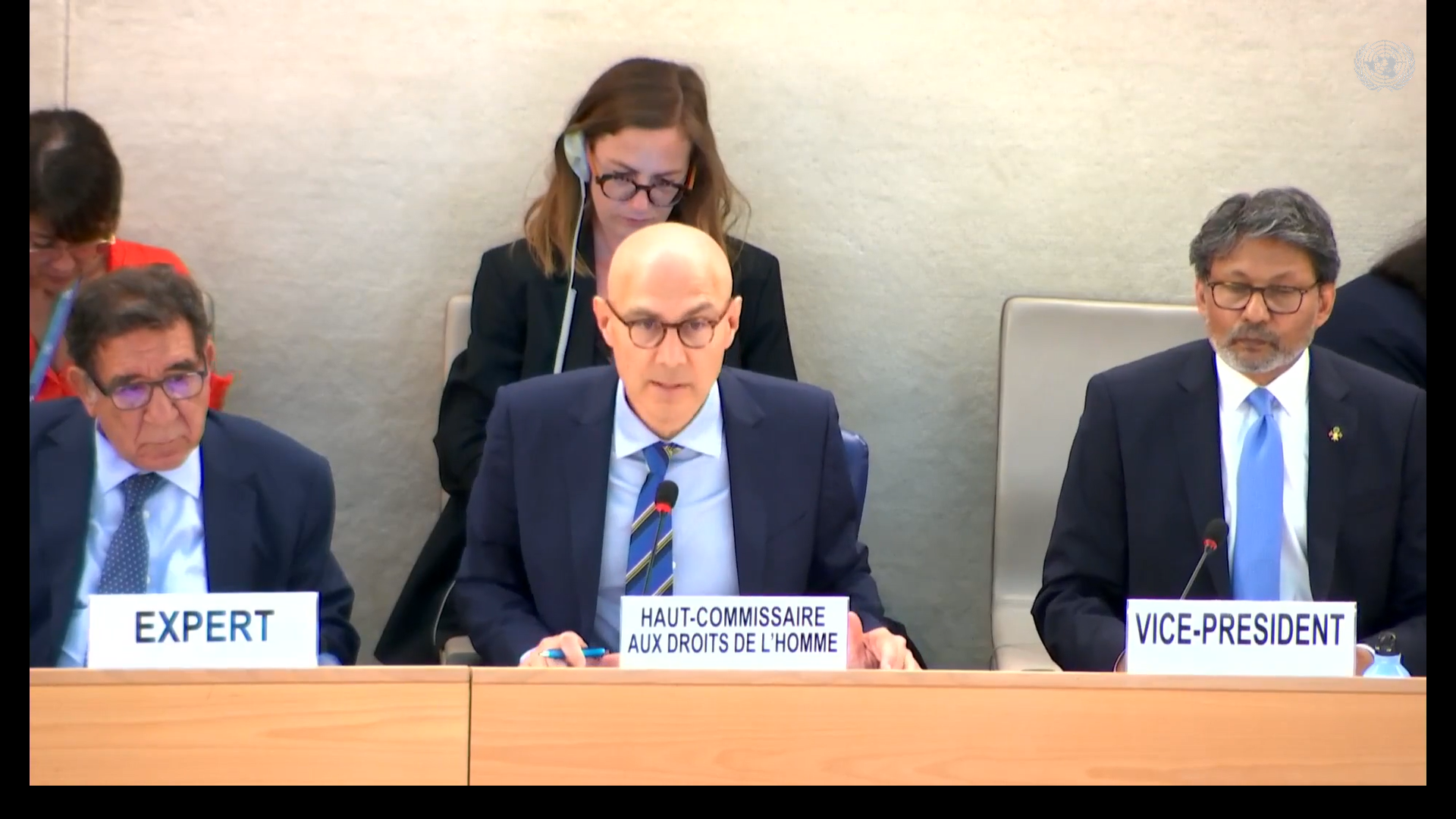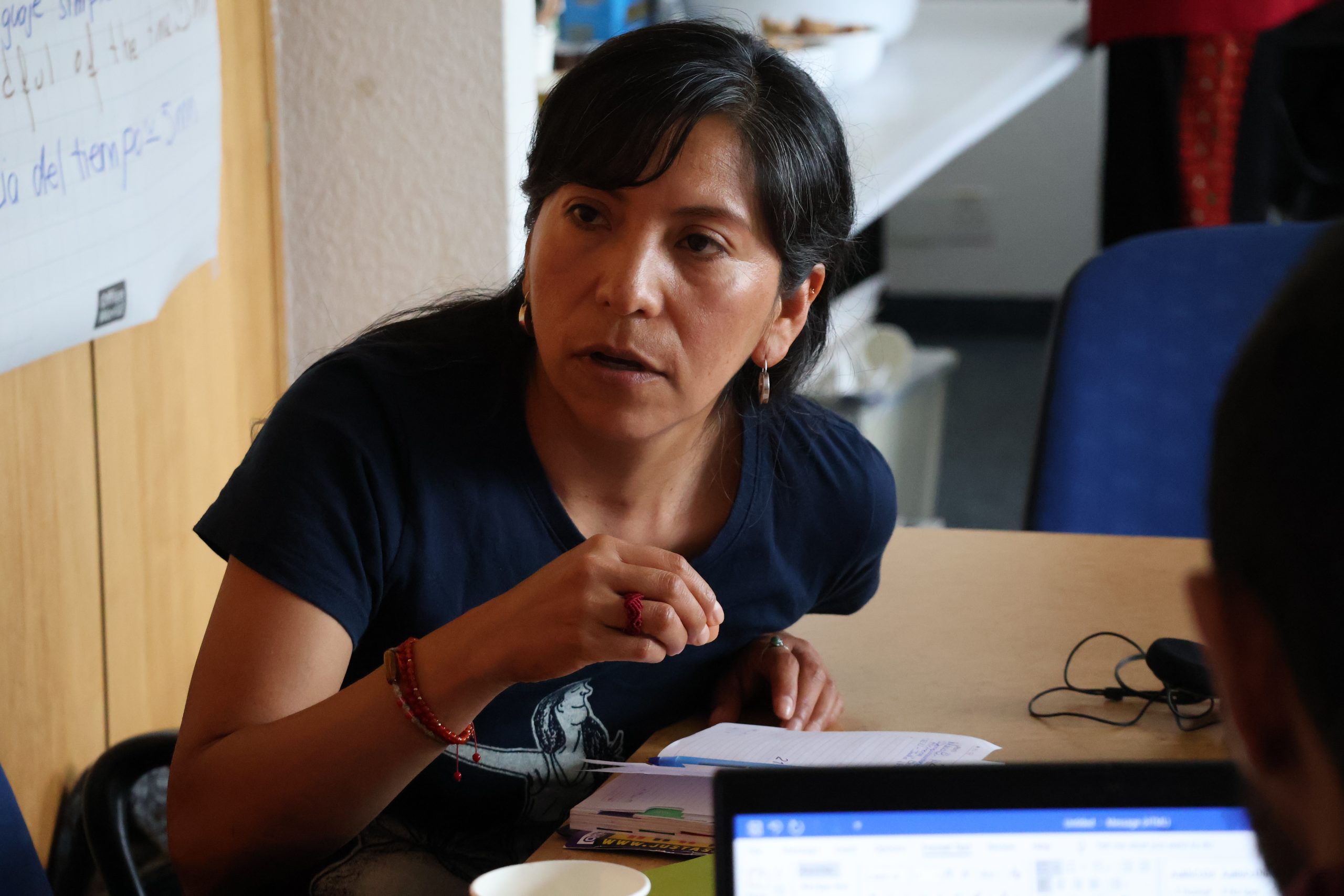
Egypt: Reform unjust vice laws, guarantee open civic space
During Egypt's UPR adoption at HRC59, Nora Noralla delivered a joint statement on behalf of ISHR, Cairo 52 and Middle East Democracy Center. Watch and read the full statement below.
UNWebTV

During the enhanced interactive dialogue on 19 June 2023 with the High Commissioner and the designated Expert on Sudan, ISHR, Sudanese Women Rights Action (SURWA), and WHRDMENA Coalition delivered a joint statement drawing attention to the deteriorating situation in Sudan.
The HRC53 joint statement by ISHR, Sudanese Women Rights Action (SURWA), and WHRDMENA Coalition highlighted the ethnically motivated violence, severe challenges facing internally displaced persons (IDPs) and refugees, and the heightened risk of sexual and gender based violence against women, including women human rights defenders (WHRDs). The joint statement called for an immediate ceasefire, access for humanitarian aid, and a well-resourced independent investigative human rights council (HRC) mechanism on Sudan to ensure accountability. Watch and read the full statement below:
More than 1200 people were killed in Elgenina in West Darfur, in horrific attacks by Janjaweed militias and RSF, according to civilians who fled the city. The attacks targeted civilians from one ethnic group in an alarming pattern of violence that amounts to ethnic cleansing. Women and children are the most affected by the conflict with the hundreds of thousands trapped in the city without protection or support.
Women in other areas of Sudan such as North and South Darfur, North Kordofan and Khartoum continue to suffer from the continuous fighting since April 15th. Sexual and gender based violence was used as a weapon in this conflict. The city of Alobied in North Kordofan has been under siege by the RSF for weeks. Civilians are trapped in the city without access to healthcare or humanitarian aid.
The ongoing war in Sudan has led to the displacement of over 2 million people, with women and children being the most affected. More than 300 thousand crossed the borders to neighbouring countries. Women and girls are suffering in the process of displacement with increasing insecurity on the roads, lack of food, and healthcare, and heightened risks of sexual violence. Thousands of women with limited means are trapped in fighting areas in Sudan and are at risk of sexual violence as increasing insecurity on the roads and visa requirements for Sudanese refugees hinder their ability to escape to safer places within and outside Sudan.
Kidnappings, arrests, checkpoints and pressure on civilians by the RSF and military to pick sides in the war are threatening the safety of women and WHRDs. Internally displaced WHRDs face increasing threats and surveillance by former regime security forces. The continuation of violence in Sudan is creating one of the worst humanitarian crises in our world. For two months, women and girls in Sudan are living without protection and victims of violence have limited access to life-saving support.
ISHR, Sudanese Women Rights Action (SURWA), and WHRDMENA Coalition demand:
During the debate, the High Commissioner spoke about his admiration for the courage of Sudanese Human Rights Defenders, especially women, who are often targets of human rights violations in the context of the ongoing conflict. The High Commissioner highlighted that the perpetrators of these violations act with impunity, and discussed the need for accountability and a cessation of violence. He also cited the urgent need for access to vital resources within Sudan and at its borders, and called for states bordering Sudan to keep their borders open, underscoring the risks faced by IDPs and refugees. Enass Muzamel, a Sudanese women human rights defender, also spoke at the dialogue about the plight of the Sudanese people, the urgent need for resources and the dire situation faced by refugees and internally displaced persons. She further called on the international community to provide support in documenting and collecting evidence surrounding perpetrators of violations, and to hold those perpetrators accountable. The Designated Expert, Radhouan Nouicer, spoke at the end of the dialogue, also reiterating the imperative nature of investigating violations in order to combat impunity and ensure an end to the conflict. They all highlighted the reports of the use of sexual and gender based violence as a weapon in the conflict.
Many States expressed their concern over the various issues mentioned in the joint statement by ISHR, Sudanese Women Rights Action (SURWA), and WHRDMENA Coalition including ethnically motivated violence, the dire situation for women and children, including the risk of sexual and gender based violence and the situation of internally displaced persons and refugees, called for an immediate ceasefire and urged unimpeded access for humanitarian assistance. In addition, a few States also called for the inclusion and participation of women as a key part of the peace and transition process, and highlighted the need for the protection of women against sexual and gender based violence and for them to be able to access much needed treatment and follow-up services. While some States called for investigation and accountability, they did not specifically endorse the joint NGO call for a HRC independent investigative mechanism.
NGO statements also called for an immediate halt in hostilities, for safe and unhindered humanitarian access and called on the HRC to establish an independent investigative mechanism.Many organisations also raised the situation of internally displaced persons, refugees, and the threat of ethnic cleansing, and the increased threat of sexual and gender based violence faced by women and the need to prioritise the inclusion of women in the conflict resolution process.
Download as PDF
During Egypt's UPR adoption at HRC59, Nora Noralla delivered a joint statement on behalf of ISHR, Cairo 52 and Middle East Democracy Center. Watch and read the full statement below.

At the Human Rights Council, Belgium delivered a statement on behalf of over 60 States that 'pays tribute to the numerous achievements and meaningful progress made by women and girls human rights defenders, and emphasises the continued need for their voices to be heard and supported'.

The 59th session of the UN Human Rights Council (16 June to 9 July 2025) will consider issues including civil society space, climate change, sexual orientation and gender identity, violence and discrimination against women and girls, poverty, peaceful assembly and association, and freedom of expression, among others. It will also present an opportunity to address grave human rights situations including in Afghanistan, Belarus, China, Eritrea, Israel and oPt, Sudan, Syria and Venezuela, among many others. Here’s an overview of some of the key issues on the agenda.